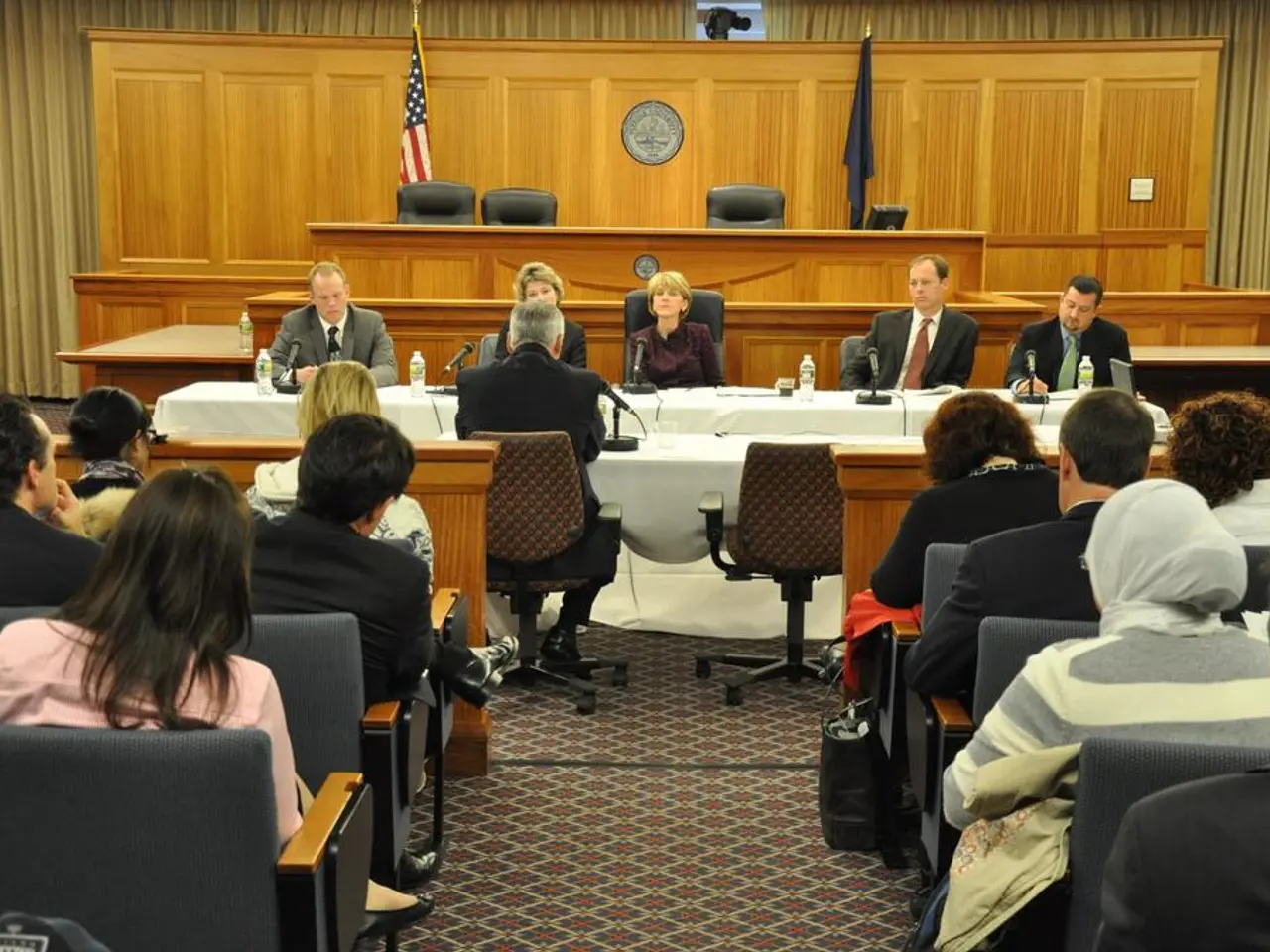Strengthening the bond between Germany and the United Kingdom is the mutual aim
In a historic move, Chancellor Friedrich Merz of Germany is set to travel to London on Thursday to sign a comprehensive friendship treaty with British Prime Minister Keir Starmer. This treaty marks a significant step forward in the relationship between the two countries, aiming to bring the United Kingdom and Germany closer than ever before.
The treaty, to be signed on July 1st, 2025, outlines a broad and ambitious framework for cooperation across various sectors, including diplomacy, security, development, trade, migration, and cultural relations.
One of the key areas of focus is Ukraine's recovery and reconstruction. The UK and Germany have pledged a coordinated alliance to support Ukraine’s reform, recovery, and resilience efforts. This includes strategic alignment on reconstruction support, championing annual Ukraine Recovery Conferences, and improving joint humanitarian, development, and peace actions involving Ukrainian civil society.
In the defence sector, the treaty builds on the 2024 Trinity House Defence Agreement, aiming for a deeper, long-term defence partnership. This partnership is designed to address threats and strengthen NATO, with a focus on advancing the development of a new Deep Precision Strike capability to provide a conventional deterrent in Europe. The treaty also envisages joint export campaigns for military equipment co-produced by the UK and Germany, such as Boxer armored vehicles and Typhoon fighter jets.
The treaty addresses migration challenges, including cooperation to combat migrant smuggling. German Chancellor Friedrich Merz has committed to legal reforms to disrupt illegal migrant supply lines across the English Channel.
Economic cooperation is another major aspect of the treaty, with announcements of joint investment deals between the two largest European economies. The aim is to reduce trade barriers and strengthen economic ties despite the UK’s post-Brexit stance on the EU single market and customs union.
The treaty also promotes closer relations in cultural expression and dialogue, facilitating the sharing of best practices to strengthen bilateral ties beyond politics and economics.
The treaty includes regular strategic consultations on foreign and security policy to shape joint responses to global and European challenges. A Joint Cabinet will oversee and review the implementation of 17 priority projects born out of the treaty every two years, ensuring adaptive and ongoing collaboration.
The friendship treaty between Germany and the UK will have far-reaching implications, signalling a comprehensive, forward-looking partnership focusing on security and defense, economic cooperation, humanitarian support, and cultural ties. An expert group will seek solutions for other mobility issues arising from Brexit, particularly in education, science, culture, and political organizations.
Chancellor Friedrich Merz's visit to the UK is his inaugural trip, and he has previously met with British Prime Minister Keir Starmer at several summits. Key areas of cooperation include closer coordination in foreign and defense policy, addressing irregular migration, and promoting economic cooperation and citizen exchange.
Sources: [1] BBC News [2] The Guardian [3] Reuters [4] Deutsche Welle [5] Sky News
The friendship treaty, signed between Chancellor Friedrich Merz of Germany and British Prime Minister Keir Starmer on July 1st, 2025, extends beyond politics and economics, encompassing cooperation in various sectors such as diplomacy, security, development, trade, migration, and cultural relations. In the defense sector, the treaty emphasizes a deeper partnership, building upon the 2024 Trinity House Defence Agreement, focusing on advancing a new Deep Precision Strike capability and joint export campaigns for military equipment.








